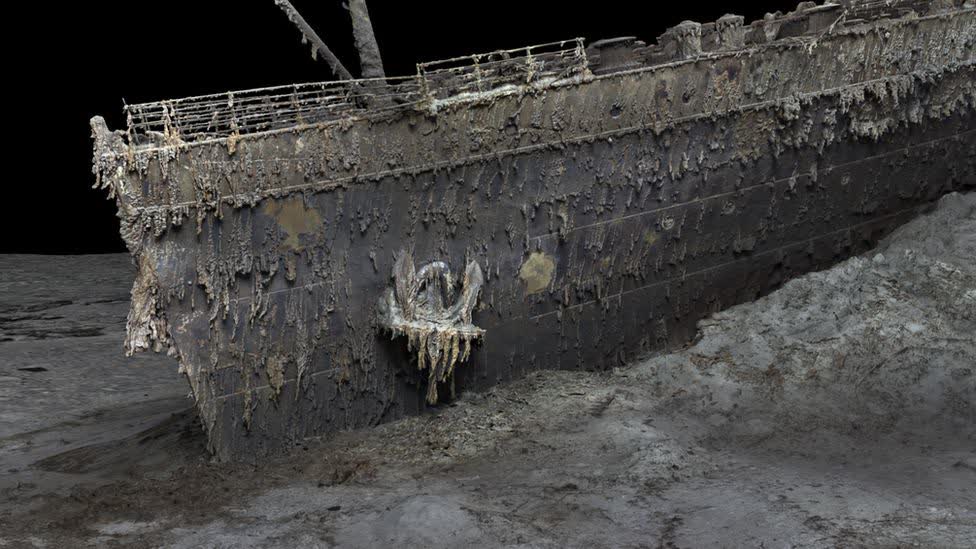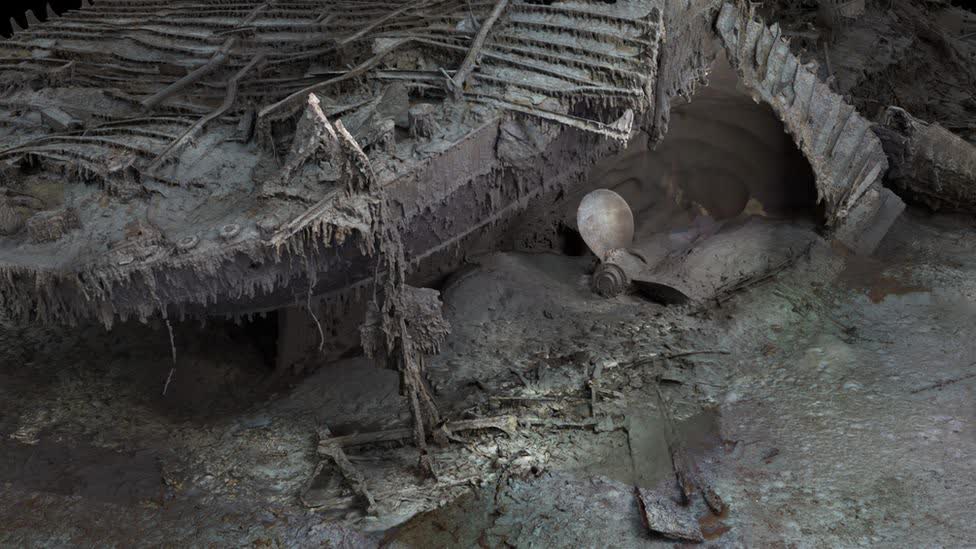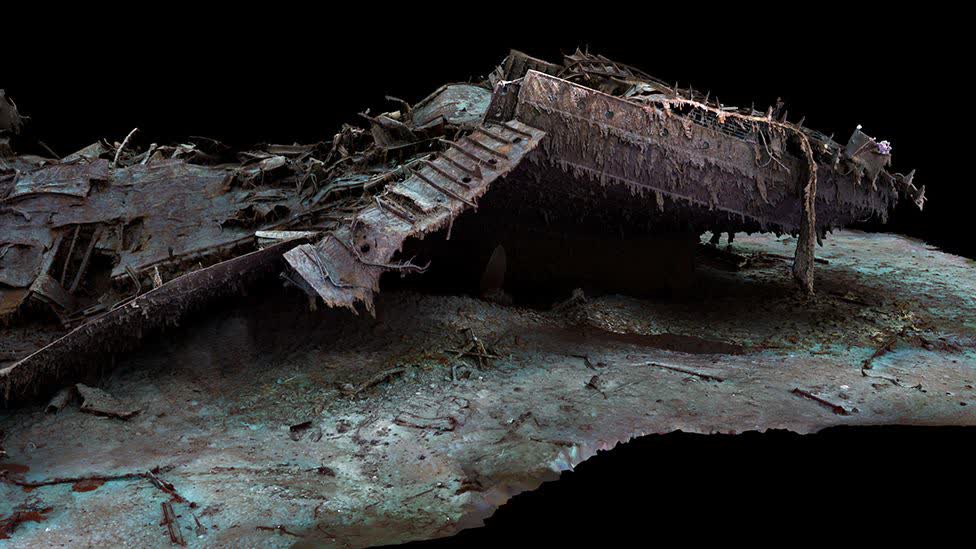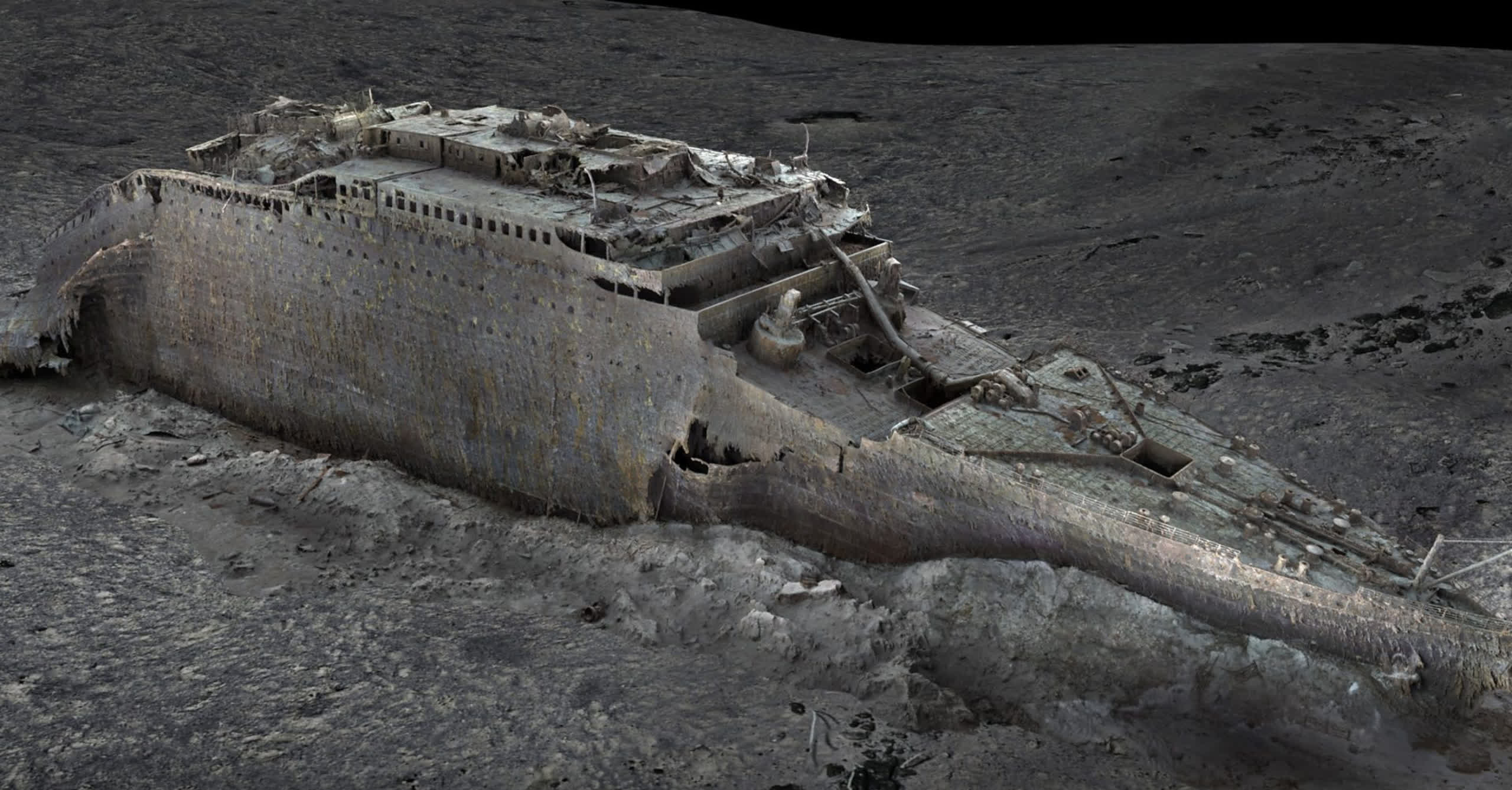What just happened? The sinking of the Titanic is one of the most notorious maritime disasters ever recorded. A new scanning effort is now bringing the shipwreck beyond speculation and blockbuster Hollywood films, giving experts and researchers the chance to finally answer some of the ship's biggest mysteries.
Deep-sea mapping company Magellan and British television company Atlantic Productions have worked together on a new, full-size scan of the RMS Titanic, the British passenger liner which sank in 1912. The herculean effort, which Atlantic is making a documentary about, took place in 2022 in the depths of the Atlantic Ocean.
Magellan employed a flotilla of submarine bots, remotely controlled from a specialized ship, to scan the Titanic's decaying shell for more than 200 hours. The survey had to endure the deep, cold, and dark waters of the Atlantic seabed, 3,800 meters below sea level, fighting underwater currents and trying not to disrupt or damage the liner's rusty remains.
The bots snapped over 700,000 images, which were later used to create a faithful 3D reconstruction of the shipwreck. Magellan Data Manager Gerhard Seiffert told the BBC the company had to scan and map every square centimeter, shooting the hull and the "uninterested parts" as well as the debris field, mud, and everything else.



The 3D reconstruction depicts the characteristic bow of the Titanic, which is still recognizable even after spending more than a century on the ocean floor. The stern, however, is a mess of metal wreckage. Unopened champagne bottles and personal belongings such as shoes litter the area.
A large hole on top of the deck provides a glimpse of what remains of the ship's grand staircase. The 3D scan shows both the scale of the ship, and some smaller details such as the serial number carved on one of the metallic propellers. Titanic researcher Parks Stephenson said he was "blown away" when he saw the reconstruction for the first time.
The 3D scan depicts the Titanic in its actual state, Stephenson said, like it has never been seen before since the ship resting location was discovered in 1985. The Titanic is considered the deadliest sinking of a single ship ever recorded, with 1,500 deaths out of the estimated 2,224 passengers and crew aboard.
Stephenson said there are still things we don't really know about the Titanic's collision with the iceberg, and the new digital survey could reveal the condition the ship actually was in when it struck the seabed.
Deep waters are eating away at the wreck, microbes are consuming the hull, and its parts are disintegrating. The new scan gives researchers the chance to "freeze" the Titanic's empty shell in time, and it can make their job a bit easier.
